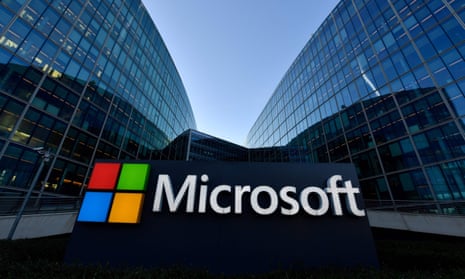Microsoft will make improvements to its search engine Bing in the event Google pulls its search product from Australia, and would be a willing participant in the news media code, the company has said.
Microsoft’s president, Brad Smith, released a statement on Monday confirming he and the company’s chief executive, Satya Nadella, had spoken with the prime minister, Scott Morrison, and the communications minister, Paul Fletcher, about the proposal last week and said Microsoft “fully supports” the code.
“The code reasonably attempts to address the bargaining power imbalance between digital platforms and Australian news businesses,” he said.
“It also recognises the important role search plays, not only to consumers but to the thousands of Australian small businesses that rely on search and advertising technology to fund and support their organisations.”
The code, which is currently before the parliament, would facilitate negotiations between media companies and digital platforms – currently just Facebook and Google – for payment for content. If an agreement cannot be reached, then it goes to an arbiter for resolution.
Both Google and Facebook say the code is unworkable in its current form, and both have threatened that in the “worst case scenario” if the code goes ahead unamended, Google would pull its search engine from Australia, while Facebook would no longer allow people to post or view news content within Australia.
Microsoft runs Bing, Google’s biggest search engine rival, and Smith said he conveyed to the prime minister Microsoft would invest in Bing to make it “comparable to our competitors”.
“We remind people that they can help, with every search, Bing gets better at finding what you are looking for,” he said.
“We believe that the current legislative proposal represents a fundamental step towards a more level playing field and a fairer digital ecosystem for consumers, business, and society.”
Smith said Microsoft would be willing to participate in the code if the government designated Bing as a digital platform under the code. Guardian Australia has asked Microsoft what payments the company might expect to pay under the code.
The prime minister was also lobbied by the Facebook CEO, Mark Zuckerberg, which the treasurer, Josh Frydenberg, described on Sunday as constructive, but did not dissuade the government from proceeding with the code.
Microsoft is the first major platform not subject to the code to express public support for the code. Twitter told the Senate committee reviewing the legislation the code would likely entrench dominant players in both the digital platforms and publishers, and make it harder for new entrants to compete.
Google stepped up its campaign against the code last week, putting in a large yellow information box about the company’s position on the code in search results in Australia. The box has since been removed.
Both Google and Facebook have been at pains to state that withdrawing some services from Australia does not amount to a threat, just the worst case scenario, but Smith said Microsoft would never make such a threat.
“We appreciate what Australia has long meant for Microsoft’s growth as a company, and we are committed to supporting the country’s national security and economic success,” he said.
